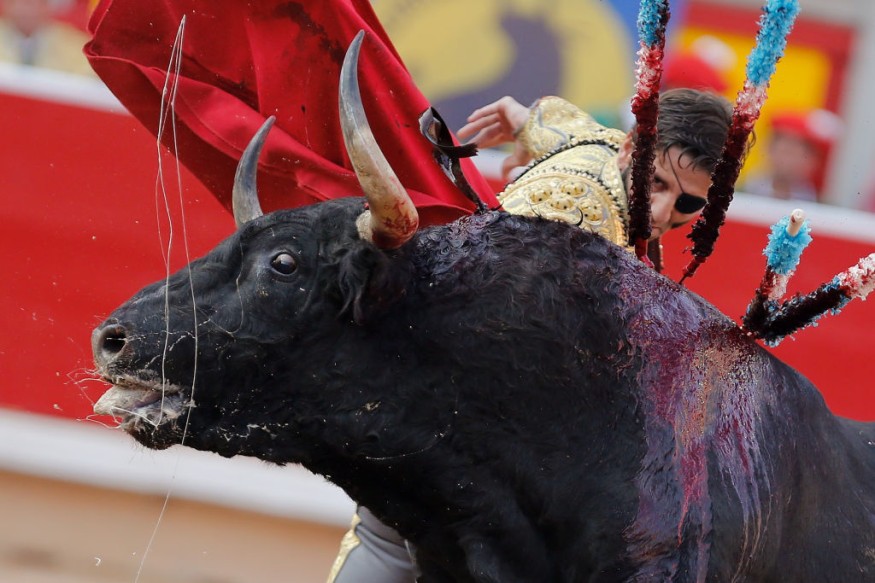
Many countries throughout the world have banned the 'sport' bullfighting by law to bring an end to the 'cruel practice'. Meanwhile, Europe still considers it as a national culture and somehow kept the practice alive despite MEP's attempt to ban subsidies to breeding farms of fighting bulls. What gives?
It turns out that public funding goes to these farms through the EU's common agricultural policy (CAP), a long-running system of subsidy support to the sector. In fact, bullfighting activities still benefit from around €200m (£170m) every year in EU farming subsidies, according to The Guardian.
Apparently, attempts to ban were set aside due to concerns that it will deviate from the legal provisions of the CAP.
"Difficult legal avenues" to ban bullfighting
Bullfighting or Spanish la fiesta brava ("the brave festival") has long been raising several controversies due to its inhumane nature. In 2015, the Member of the European Parliament (MEP) voted in favor of blocking financial subsidies to the bullfighting industry in response to the animal rights campaigners' cause.
"Bullfighting is a cruel practice that inflicts a great amount of pain and suffering on bulls. While the EU cannot legislate to ban bullfighting, it can stop granting farming subsidies to bull breeders," executive director Joanna Swabe, Ph.D. said in Humane Society International. "These subsidies are indirectly helping to keep the cruel practice of bullfighting alive."
Six years later, the effort had been put aside due to "pretty difficult" legal avenues. "In fact, I would say they're impossible," said Joe Moran at animal advocacy organization Eurogroup for Animals.
Removing subsidies altogether "would require animal welfare to be an official competence of the EU, coupled with a law that would ban the raising of bulls for this purpose or prohibit bullfighting altogether," Moran added.
"Not excluded"
Generally, CAP's main purpose is to guarantee minimum levels of production for Europeans and ensure a fair standard of living for those dependent on agriculture, according to The Guardian. While there were no funds specifically designated for breeding bulls for fighting, a EU official said that "it is not excluded", and bull breeders could still receive public funds from agricultural funding, which have mostly been allocated not on output but the amount of land farmed.
Despite Green MEPs 2020 amendment to bar "the sale for activities related to bullfighting", the European Commission, Council of the EU and parliament dropped and finalized the policy. Portuguese MEP Francisco Guerreiro said the fund was "an oxygen balloon that is continually helping this industry to stay afloat".
For instance, when the pandemic hit, Europe's bullfighting industry plunged and reported losses of more than €150m (£125m) and the sector struggled to recover from the economic crisis.
"It's discriminatory to create this concept that the fate of these cattle can be tied to receiving funds or not," said Antonio Bañuelos, president of Spain's Unión de Criadores de Toros. Any ban would also prevent EU farmers producing a variety of products access to funding.
An association of Spanish veterinarians who are opposed to bullfighting said that the public suffering inflicted on bulls was "unjustifiable", but Bañuelos replied that the fighting bull's death is "quicker and entails less suffering" than many commercial animals.
© 2025 NatureWorldNews.com All rights reserved. Do not reproduce without permission.

